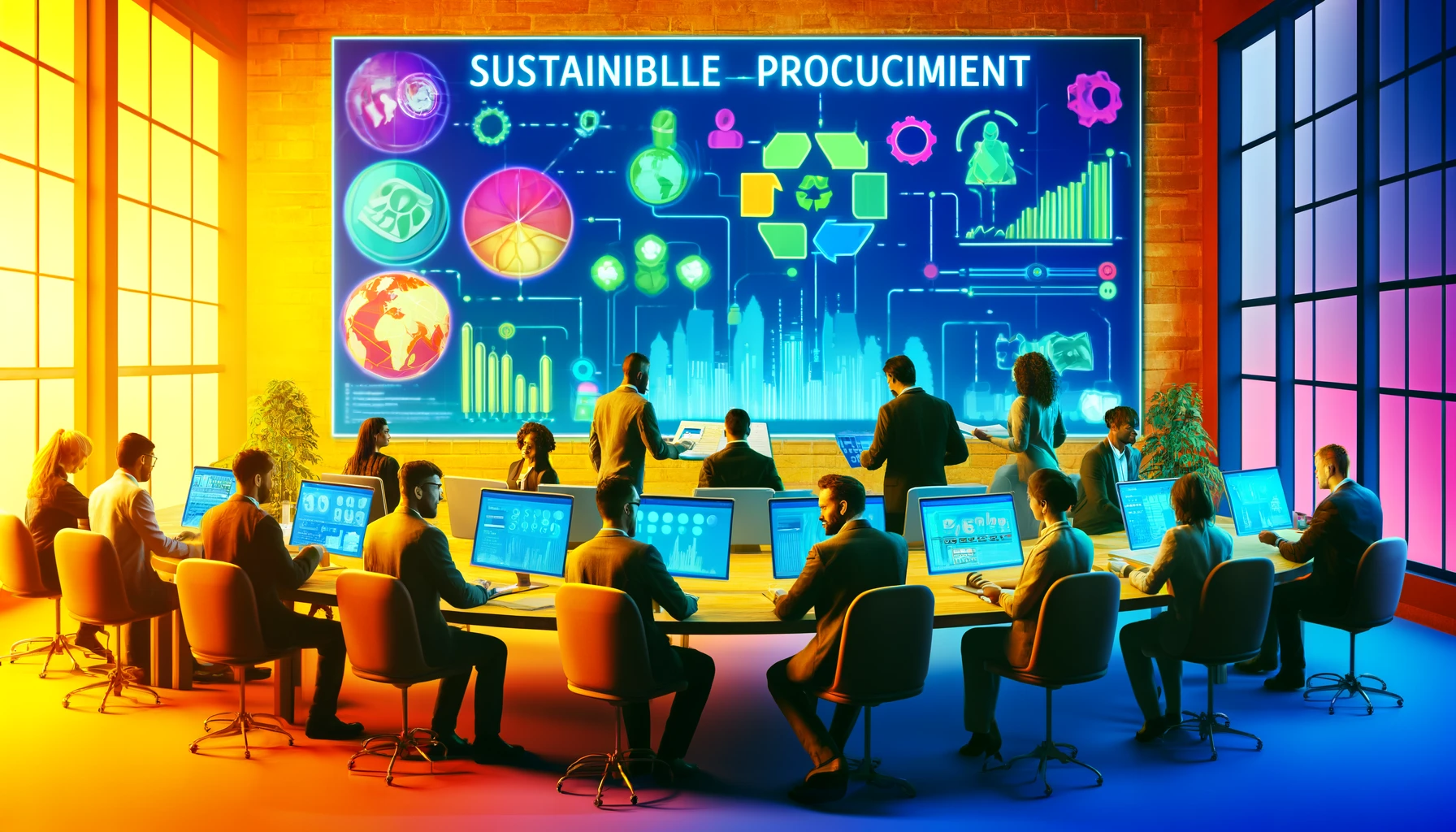- お役立ち記事
- The Role of Procurement and Purchasing Departments in Reducing the Environmental Impact of Processed Goods in the Manufacturing Industry
The Role of Procurement and Purchasing Departments in Reducing the Environmental Impact of Processed Goods in the Manufacturing Industry

Procurement and purchasing departments play a vital role in reducing the negative environmental impacts of processed goods in manufacturing. These teams are uniquely positioned in their companies to make purchasing decisions that consider environmental sustainability. Through mindful sourcing and vendor selection, procurement can lower emissions, waste, and resource usage throughout the supply chain.

When procuring processed materials and components, aspects like transportation, packaging, and ingredient sourcing all contribute to a product’s carbon footprint. Careful selection of local and regional suppliers over international ones can significantly cut down on transportation emissions from shipping. Procurement should prioritize sourcing from vendors located reasonably close by whenever possible to reduce the distance goods must travel.
Packaging is another area procurement can influence. Choosing suppliers that utilize minimal, reusable, or recyclable packaging helps minimize waste. Procurement teams should make packaging sustainability a selection criteria, inquiring about vendors’ strategies to reduce, reuse, and recycle materials. Shifting to cardboard, paper-based, or other recyclable materials over excess plastic or other hard-to-recycle options is recommended.
Ingredients and raw materials are a third procurement lever. Giving preference to suppliers utilizing sustainable, renewable, recycled, or certified sources sends a demand signal up the supply chain. Asking vendors about sourcing practices and prioritizing those using organic, non-GMO, recyclable, or otherwise eco-friendly inputs lowers environmental impact. Procurement can research ingredient suppliers to uncover more sustainable origins like wind or solar powered operations.
Cost is often the primary factor in procurement decisions, but total cost of ownership must account for externalities like carbon emissions, waste disposal fees, and future regulatory risks. Suppliers with strong sustainability programs may have higher initial pricing but offer long-term savings through efficiency gains, waste minimization, or reduced compliance costs down the road. Procurement’s role is weighing these harder-to-measure factors against upfront price alone.
Vendor management also falls under procurement’s purview. Tracking suppliers’ sustainability metrics and goals over time is important for continuous improvement. Annual sustainability reports and audits provide procurement insights into where vendors are enhancing practices or falling short. This performance monitoring allows procurement to uphold high standards, recognize leaders, and redirect business if needed based on environmental track records.
Procurement contracts establish expectations and future planning certainty. Including sustainability criteria, reporting requirements, or emissions reduction targets in contracts formalizes sustainability as part of the business relationship, not just a one-time discussion. Multi-year agreements provide the time horizon needed for meaningful process upgrades or innovation. Procurement maintains accountability through oversight of contract fulfillment.
Collaboration with R&D and operations enables procurement’s sustainability role. Understanding production needs, materials, and processes empowers procurement to source goods that minimize environmental impact whilst meeting other requirements. Joint projects developing more sustainable materials or pursuing circular supply options drives progress. Information sharing across functions creates alignment around sustainability as a shared priority throughout the value chain.
Leading by example inspires supply chain partners to follow suit. When procurement makes the business case that sustainability saves money or create competitive advantages, suppliers understand it is in their interest too to “go green.” Training and educating vendors on the manufacturer’s goals and strategies empowers sustainable actions upstream. Bringing key suppliers into sustainability workshops and initiatives fosters cooperation on joint solutions.
Procurement professionals hold substantial influence to guide industry progress on reducing negative environmental effects. Through smart sourcing and advocating for sustainability across the supply base, procurement acts as a linchpin of corporate eco-responsibility and improved resource stewardship. With increased prioritization and focus on total lifecycle impacts, the purchasing function can drive meaningful reductions in carbon emissions, waste generation, and raw materials consumption throughout complex manufacturing networks.

 資料ダウンロード
資料ダウンロード
QCD調達購買管理クラウド「newji」は、調達購買部門で必要なQCD管理全てを備えた、現場特化型兼クラウド型の今世紀最高の購買管理システムとなります。
 ユーザー登録
ユーザー登録
調達購買業務の効率化だけでなく、システムを導入することで、コスト削減や製品・資材のステータス可視化のほか、属人化していた購買情報の共有化による内部不正防止や統制にも役立ちます。
 NEWJI DX
NEWJI DX
製造業に特化したデジタルトランスフォーメーション(DX)の実現を目指す請負開発型のコンサルティングサービスです。AI、iPaaS、および先端の技術を駆使して、製造プロセスの効率化、業務効率化、チームワーク強化、コスト削減、品質向上を実現します。このサービスは、製造業の課題を深く理解し、それに対する最適なデジタルソリューションを提供することで、企業が持続的な成長とイノベーションを達成できるようサポートします。
 オンライン講座
オンライン講座
製造業、主に購買・調達部門にお勤めの方々に向けた情報を配信しております。
新任の方やベテランの方、管理職を対象とした幅広いコンテンツをご用意しております。
 お問い合わせ
お問い合わせ
コストダウンが利益に直結する術だと理解していても、なかなか前に進めることができない状況。そんな時は、newjiのコストダウン自動化機能で大きく利益貢献しよう!
(Β版非公開)


